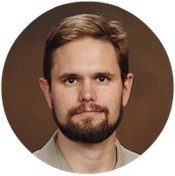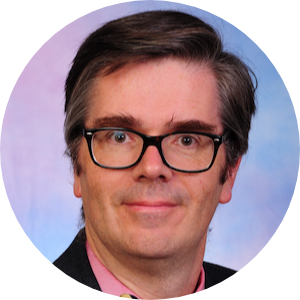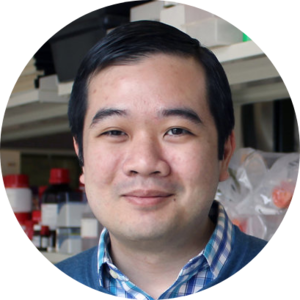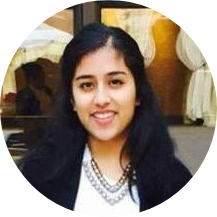PEOPLE
Speakers Knowledge Support Reviewers Organizers.
Salvatore La Rosa, PhD
Chief Scientific Officer at the Children’s Tumor Foundation
Salvatore La Rosa, PhD, serves as the Chief Scientific Officer at the Children’s Tumor Foundation (CTF) and he is responsible for the implementation of the Foundation’s business strategy into research projects. He manages the foundation’s research activities, providing scientific and knowledgeable review of discovery, preclinical and early development programs in the field of Neurofibromatosis (NF). Dr. La Rosa is responsible for the development and management of novel partnerships and initiatives with academic research groups and biotech/pharma companies which could address unmet needs in the field. Besides the activities of compound scouting and grants management, he is involved in ad-hoc collaborative research programs, CRO selection and management, as well as preclinical testing consortia and the implementation of a data-sharing platform for NF in collaboration with Sage Bionetworks and other NF funders. He has co-authored more than 30 peer-review research articles and in previous jobs served as Group Leader and Project Leader for Siena Biotech (Italy), Nikem Research (Italy) and Evotec (UK) leading projects in the area of neurodegeneration and oncology. He holds a Ph.D. in Medicinal Chemistry from the University of Strathclyde in Glasgow (Scotland, UK) and MSc in Organic Chemistry from the University of Messina (Italy).
Sara Gosline PhD
Senior Research Scientist, Sage Bionetworks
I'm a systems biologist with over ten years of experience working with high dimensional biological datasets and am currently leading a team of scientists to encourage and facilitate collaborative research in rare disease.
My group's research focuses on combining diverse types of data in cancer and cancer syndromes to better understand what causes the disease and identify putative drug targets. This research spans anything from building basic probabilistic models to larger network optimization approaches. In particular I work on facilitating, enabling, and applying these integrative approaches to better study Neurofibromatosis (NF), a disease that effects up to 1 in 3000 world wide. By acting as the primary coordinator of NF work funded by the NCI, Children's Tumor Foundation and the Neurofibromatosis Therapeutic Acceleration Program, we at Sage can better understand the challenges in studying this rare disease and accelerate the pace of finding a treatment.
Jineta Banerjee Ph.D.
Research Scientist, Sage Bionetworks
Jineta Banerjee is a Research Scientist at Sage Bionetworks, a nonprofit biomedical research and technology development organization with a focus towards accelerating biomedicine through open practices and computational analysis of biomedical data. Dr. Banerjee received her PhD. in Neuroscience from Carnegie Mellon University for her work in describing changes in inhibitory neuronal connections during early development. She then took a systems biology approach to study changes in neuronal function due to magnetic stimulation as well as neuron-glia interaction through postdoctoral research at Johns Hopkins University and University of Washington respectively. At Sage Bionetworks, Dr. Banerjee is developing systems biology approaches to identify biological signatures of different Neurofibromatosis tumor types with the goal of exploring precision medicine targets for Neurofibromatosis.
Robert Allaway PhD
Research Scientist, Sage Bionetworks
Robert Allaway is a research scientist at Sage Bionetworks, a biomedical non-profit research institute founded in 2007 with the mission of accelerating the pace of biomedical research. Dr. Allaway received his PhD in 2016 from Dartmouth College, where he was a CTF Young Investigator Awardee. At Dartmouth, Dr. Allaway’s research focused on drug discovery, tumor model development, and mitochondrial dynamics as they pertain to NF1-linked and other Ras-dysregulated tumors. At Sage, Dr. Allaway is developing systems biology approaches to identify common biological themes in NF1, NF2, and schwannomatosis with the goal of discovering new drug targets for these diseases.
Ben Busby, PhD
Computational Biology Branch, NCBI, NLM, NIH
MC - Knowledge Support - Reviewer
Ben leads the NIH's efforts to partner with Genomics hackathons. His research interests include generation of clustering algorithms for analysis of large gene families and whole genomes and Phylomic Analysis of Gene Transfer Events. Ben holds a PhD in Biochemistry and Molecular Biology from University of Maryland, Baltimore.
Sharad K. Verma, PhD
Director of Research and Development, The Neurofibromatosis Therapeutic Acceleration Program
Assistant Professor of Neurology, The Johns Hopkins University School of Medicine
Sharad is the Director of Research and Development for the Neurofibromatosis Therapy Acceleration Program (NTAP), and an Assistant Professor in the Department of Neurology, at The Johns Hopkins University School of Medicine. In these roles, Dr. Verma oversees basic science and translational initiatives as they pertain to the discovery and development oftherapeutics for the treatment of plexiform and cutaneous neurofibromas. Dr.Verma’s core expertise is in the development of small molecule drugs(medicinal chemistry, chemical synthesis, structure based drug design) for cancer, and additional areas of experience include chemical biology, R&D project management, and clinical development. Prior to joining JohnsHopkins University, Dr. Verma was in the pharmaceutical industry for nearly 15 years first working at Bayer and laterGlaxoSmithKline, serving in various R&D leadership roles in the discovery and clinical development of oncologytherapeutics. During his industry tenure, Dr. Verma was a member of multiple project teams spanning the areasof signal transduction, cancer epigenetics, and immuno- oncology, which delivered a total of 6 clinicaldevelopment candidates (1 FDA approved), of which he was a program leader for 2 of the programs. Dr. Verma is areviewer for multiple scientific journals, scientific consultant for multiple scientific conferences and organizations, andhas been a reviewer on the NIH study sections for Drug Discovery for the Nervous system, and Chemical MolecularProbes. A native of the San Francisco bay area, Dr. Verma has a BS from the University of California, San Diego, a PhD in Chemistry from the University of California, Irvine, and was a NIH Postdoctoral fellow at the University ofCalifornia, Berkeley (Go Bears!).
Onno Faber
Entrepreneur, NF2 Patient
*The data used for our first NF research case was Onno's personal genomic data.* Onno is the Founder RDMD. He previously founded several companies including; Tapstack, ii studio, Hoppakay, MarketMatchers and Ding Dong. “I have been creating things and solving problems for as long as I can remember. I've studied architecture and got my degree in 2006 ( honors). My interest in the internet and entrepreneuring never left me and ever since grew stronger. Now I'm a full-time entrepreneur, enjoying developing new concepts and products. Above all I value connections to other people."
Marc Ferrer PhD
Director, 3D Tissue Models Laboratory at NCATS
Marc Ferrer is the Director of the 3D Tissue Models Laboratory at NCATS. He graduated with a BSc degree in Organic Chemistry from the University of Barcelona, Spain, in 1989, and received his Ph.D. degree in Biological Chemistry from the University of Minnesota, in 1994. He was a postdoctoral fellow at Harvard University from 1995-1999, where he used structure-based chemical approaches for the development of anti-HIV small molecules. He joined the Department of Automated Biotechnology at the Merck Research Laboratories in 1999, where he became Director of Assay Development and High Throughput Screening. In 2010, he joined the NCATS Chemical Genomics Center where he worked with investigators in the academic community to implement high throughput screening and medicinal chemistry programs for the discovery of small molecule probes to study protein function in vitro and in animal models of diseases. In the last four years, he has led the implementation of a 3D Tissue Model Laboratory at NCATS, a multidisciplinary group that uses 3D tissue biofabrication techniques, including 3D bioprinting, to create 3D tissue in multi-well plate format for disease modeling and drug discovery.
Nancy Ratner, PhD
Co-Director, Rasopathy Program
Program Leader, Cancer Biology and Neural Tumors Program
Beatrice C. Lampkin Chair, Cancer Biology
Nancy Ratner, PhD, is interested in understanding mechanisms of peripheral nerve tumor (neurofibroma) formation in neurofibromatosis type 1 (NF1), a common inherited disorder in which children are predisposed to cancer of the nervous system, to learning problems, bone disorders, and other cancers. She identified EGFR and MEK as potential therapeutic targets in NF1 peripheral nerve tumorigenesis, and has developed cell culture and mouse models of NF1 nerve tumorigenesis. Her laboratory has also used analysis of gene expression to identify critical genes in neurofibroma and their malignant derivatives, MPNST.
Dr. Ratner received her bachelor's from Brown University, her doctorate from Indiana University, and was a postdoctoral fellow at Washington University in St. Louis. She was a member of the faculty at the University of Cincinnati from 1987 to 2004. Dr. Ratner is currently a professor in the Department of Pediatrics, Cincinnati Children’s Hospital Medical Center, University of Cincinnati, and the program leader for Cancer Biology and Neural Tumors Program in the Cancer and Blood Diseases Institute where she holds the Beatrice C. Lampkin Endowed chair in cancer biology and serves as PI of the NINDS P50 “Cincinnati Center in NF Research.”
Dr. Ratner is an active member of the International Consortium on the Molecular Biology of NF1, NF2, and Schwannomatosis and was a member of the advisory board for the National Neurofibromatosis Foundation (now Children’s Tumor Foundation) from 1989 to 2007. She chaired the Department of Defense Neurofibromatosis Research Program Integration Panel in 2008, and currently serves as a member of the James McDonnell Brain Tumor Research Advisory Board. She received the von Recklinghausen Award from the Children’s Tumor Foundation in 2010 and the Jacob K. Javits Neuroscience Investigator Award (NIH-NINDS MERIT Award) in 2014.
Wenli Cai Ph.D.
Asst. Prof. at Massachusetts General Hospital
Dr. Cai is the Director of 3D Quantitative Imaging Laboratory at the Massachusetts General Hospital and an Assistant Professor of Radiology at Harvard Medical School. His research interests are computer-aided detection and quantitative imaging analysis for treatment planning and tumor response evaluation, for which he developed a quantitative imaging software platform and a broad range of clinical applications for volumetric image analysis of tumors and organs. He is the author and co-author of 80 scientific papers and book chapters, and received several awards from the Annual Meetings of Radiological Society of North America (RSNA).
Gordon J. Harris, Ph.D.
Professor of Radiology at Harvard Medical School
Dr. Harris is Professor of Radiology at Harvard Medical School, Director of the 3D Imaging Service, Radiology Clinical Trials, and the Radiology Computer Aided Diagnostics Laboratory at the Massachusetts General Hospital, and the Co-Director of the Tumor Imaging Metrics Core and Precision Imaging Metrics for the Dana-Farber/Harvard Cancer Center, and has published over 100 scientific articles and book chapters. In addition to developing software and services applying computer analyses of medical images to aid in diagnosis, treatment planning, and clinical trials, his primary research interests include structural and functional brain imaging research in psychiatric and neurologic illnesses including alcoholism and stroke, as well as quantitative tracking of tumors for clinical care and clinical trials.
Marco Giovannini, M.D., Ph.D.
Professor and Medical Doctor, UCLA
Marco Giovannini, M.D., Ph.D. is Professor-in- Residence of Head and Neck Surgery at the University of California Los Angeles (UCLA) and Clinical Research Director of the UCLA NF2 Multidisciplinary Clinic. A molecular geneticist by training, Marco Giovannini is a physician-scientist who conducts laboratory and clinical research, and is a world thought leader in the field of Neurofibromatoses. His NIH, Department of Defense and private foundation-supported research laboratory develops models of disease to test new therapeutic options and studies mechanism of action of treatments in patients.
Avantika Lal, PhD
Deep Learning Genomics Scientist at NVIDIA.
Avantika recently joined NVIDIA - Previously she was a BRCA Foundation Young Investigator at Stanford University. Her scientific accomplishments include discovering clinically relevant subtypes of 21 cancers by developing CIMLR, a novel clustering algorithm for multi-mic data, while working as a Postdoctoral Researcher at Stanford University. Avantika also developed a machine learning algorithm to identify mutational process active in cancer and neural networks to identify potential antimalarial drug targets. Avantika received her Ph.D. in Genomics from the National Centre for Biological Sciences in India.
Avantika led one of the winning teams form our NF2 Research Hackathon.
Clayton Mellina
"My current interests are primarily in deep learning for computer vision, image search, and visual similarity search. I am also particularly interested - both from a research perspective as well as a productization perspective - in intelligent systems that allow users to express search intentions or information-needs in nuanced ways that are otherwise difficult to express by language or classical search tools." Clay completed his graduate studies at Stanford University with a dual focus in Human-Computer Interaction and Artificial Intelligence. Prior to joining Google, he worked on Computer Vision and Machine Learning Team at Yahoo on many topics, including scaling deep learning and computer vision technologies for Yahoo products, product integrations, large-scale approximate nearest neighbor search, deep learning for visual similarity search, and visualization tools."
David H. Gutmann PhD
Washington University School of Medicine
David H. Gutmann received his undergraduate, graduate (PhD) and medical (MD) degrees from the University of Michigan, where he trained in immunogenetics in the laboratory of Dr. John Niederhuber. During his residency in Neurology at the University of Pennsylvania, he worked with Dr. Kenneth Fischbeck who sparked his interest in neurogenetics. He then returned to the University of Michigan for research fellowship training in Human Genetics with Dr. Francis Collins. During that time, he identified the neurofibromatosis type 1 (NF1) protein and began to elucidate its function as a RAS regulator. In late 1993, Dr. Gutmann was recruited to Washington University, becoming a full professor in 2001 and the Donald O. Schnuck Family Professor in 2002. He established the St. Louis Children’s Hospital Neurofibromatosis Clinical Program in 1994 and the Washington University Neurofibromatosis Center in 2004. His laboratory is currently focused on understanding the genomic, molecular and cellular basis for nervous system problems affecting children and adults with NF1 using both human induced pluripotent stem cells and novel genetically engineered mouse strains. They have used these preclinical models to define the cellular origins of tumors, the contribution of the tumor microenvironment, and the major growth control pathways that dictate brain development in NF. Moreover, the use of NF1 as an experimental model system has revealed numerous insights into the basic neurobiology of human disease, including tumor-stroma dependencies in the cancer ecosystem, the impact of the germline mutation on phenotypic expression, the role of sexual dimorphism in clinical outcome, and the mechanisms underlying cell type-specific, brain region-distinct, and signaling pathway diversity. Dr. Gutmann has published over 440 peer-reviewed manuscripts, and has been recognized for his achievements with numerous awards, including the 2012 Children’s Tumor Foundation Frederich von Recklinghausen Lifetime Achievement Award, the 2013 Washington University Distinguished Faculty Research Award, the 2014 Riley Church Lectureship, the 2017 Alexander von Humboldt Award, and the 2019 Society for Neuro-Oncology Abhijit Guha Award. He is a Fellow of the American Academy of Neurology, and recently completed his tenure as a member of the National Institute of Neurological Disorders and Stroke Advisory Council.
Raymond R. Mattingly, PhD
Wayne State University School of Medicine
Ray Mattingly is chair of the Wayne State University School of Medicine’s Department of Pharmacology. His commitment to cancer research is centered on the identification of effective, new therapeutic approaches to cancers that are driven through activation of Ras signal transduction pathways in the absence of direct oncogenic mutation of Ras. In the context of NF1, his group is developing 3D co-culture models of neurofibromas through the Neurofibromatosis Therapeutic Acceleration Program (NTAP), with the goal of producing new pathomimetic systems for drug screening. In work supported by the Department of Defense Neurofibromatosis Research Program, he is collaborating with a bioengineering group to develop 3D co-culture models of plexiform neurofibromas that include neuronal mimics. His laboratory is partnering with biotech and pharmaceutical companies to investigate whether drugs can be re-purposed for the treatment of NF1.
Dr. Freddy T. Nguyen, MD, PhD
MIT Hacking Medicine
Freddy is a physician-scientist-entrepreneur with extensive experience developing and translating biomedical optical technologies from the bench into the clinics for a wide number of clinical applications ranging from genetics to oncology to cardiovascular diseases. He has a long track record in community building and establishing collaborations and alliances in healthcare entrepreneurship and innovation as co-director of MIT Hacking Medicine, and in the research, medical, and physician-scientist communities to achieve and further common goals. He has held several leadership roles over the years and is passionate about the development and advocacy of training physician-scientists at the local, regional, national, and international levels.
Freddy leads the MIT Hacking Medicine group as a co-director (2018-present).


























